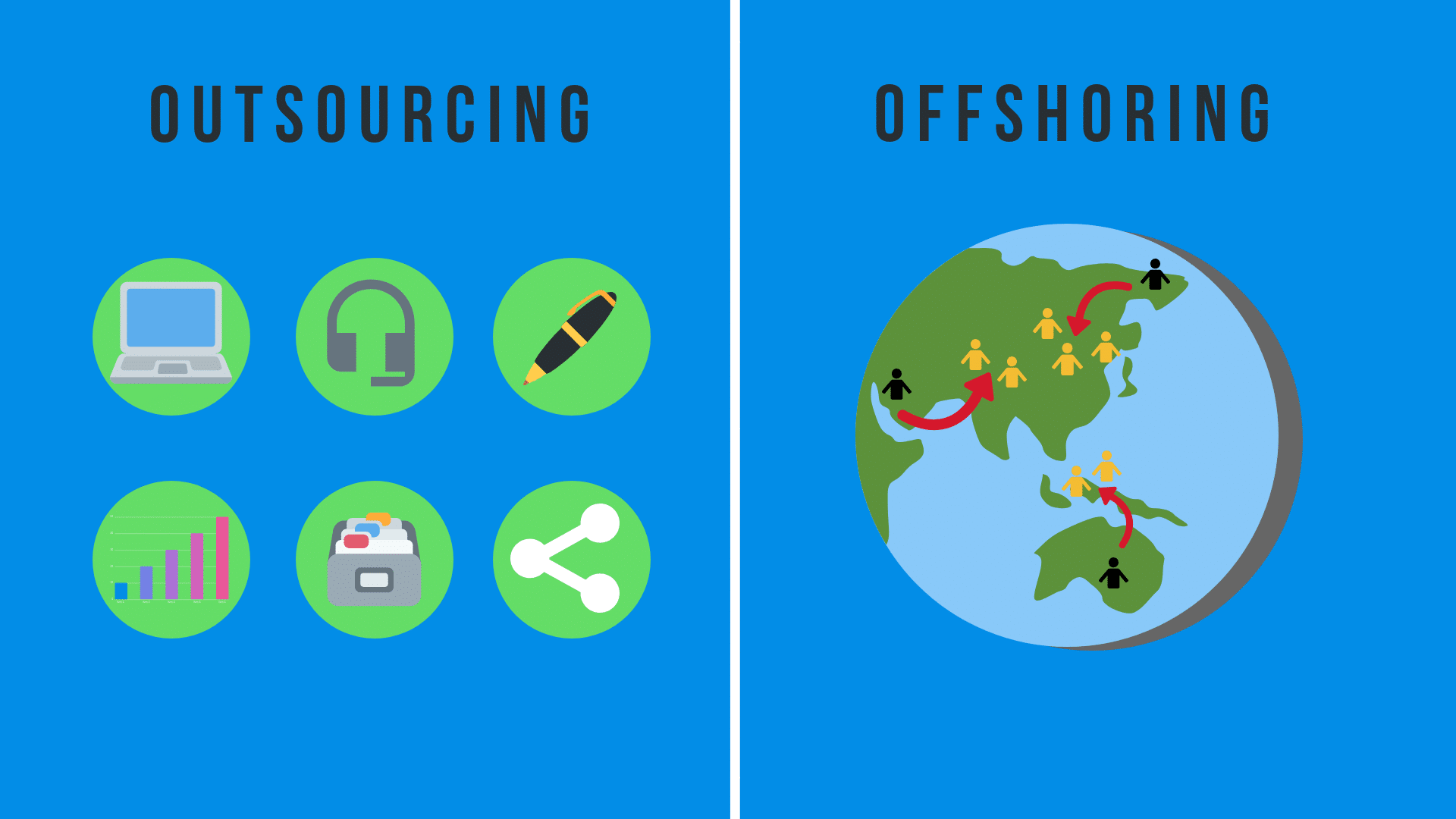Businesses are often confused with the difference between Offshoring and Outsourcing. Like, “Hey! As long as I get to hire remote workers from other regions to get my work done, I can say I am offshoring. OR… outsourcing.” While both serve the same purpose, which is to purchase a product or service at a relatively cheaper cost, both are still comparable in many ways.

Here is the technical difference between Offshoring and Outsourcing:
Offshoring.
Refers to the ability to acquire products or services from a different country or region. This implies the re-location of certain aspects of a business in another country. For instance, the production of an android smartphone by company “X”, where company “X” opens up a factory in China–which is an extension of the company.
Company X owns both offices in China and the US. Having the procurement of raw materials and the assembling of the gadget is done in the said country, but then is imported to the US for final packaging, marketing, and selling. This is what we call offshoring.
Outsourcing.
Is alluded to the acquisition of services or goods from a third-party company. More of like a supplier, in a business point of view. Essentially, outsourcing workers is now becoming a trend for small and medium businesses. Particularly popular with the positions: Virtual Assistant, Data Entry, Graphic Designer, and Bookkeeper. These positions are outsourced externally to a location with cheaper manpower costs. And by maximizing the world wide web, business owners are now taking advantage of the opportunity to operate the business in a much more cost-efficient way.
This here is exactly what Remote Staff offers. At Remote Staff, were we provide outsourcing services, having the ability to hire remote workers from the Philippines. Providing you much cheaper cost, actual specialization, and more flexibility for your business. Though cost, specialization, and flexibility may also be a similar strength when offshoring, but then again, when Outsourcing, you are hiring dedicated and experienced remote workers from the Philippines through a third-party entity.
Furthermore, Remote Staff not only offers outsourcing services in hiring dedicated staff but also provides an offshore office extension to foreign business clients. How? Office spaces or workstations may be rented out by foreign clients for the use of their outsourced staff. Imagine the convenience this brings to your business. And since Remote Staff manages your outsourcing, this also includes the timekeeping, payroll, compliance, and even work monitoring of remote workers.
Can you now tell the difference between Outsourcing and Offshoring?




















